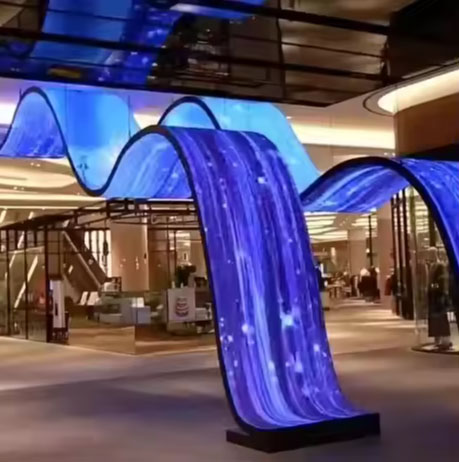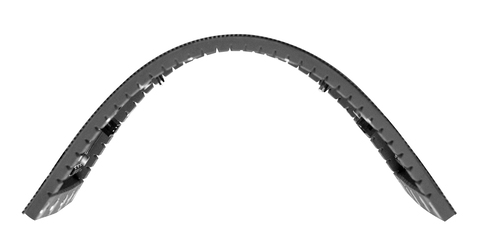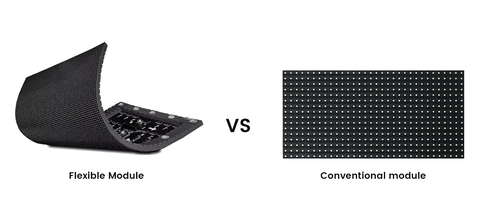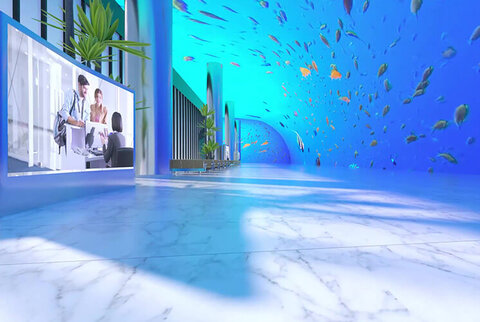
Introduction and Application of Flexible LED Screen
Flexible LED screens have revolutionized the way we perceive visual displays, offering a dynamic and versatile alternative to traditional rigid LED panels. In this article, we delve into the world of flexible LED screens , exploring their defining features, benefits, applications, underlying technology, and future trends. From understanding the components that make up these innovative displays to comparing their performance with conventional LED displays, we aim to provide a comprehensive introduction to this cutting-edge technology. Join us on a journey through the realm of flexible LED screens and discover the boundless possibilities they offer in various industries and settings.

1. Overview of Flexible LED Screens
Definition of Flexible LED Screens
Flexible LED screens are innovative display panels that can bend and conform to curved surfaces, offering unique design possibilities and flexibility in installation.
Evolution and Advancements in Flexible Screen Technology
Over the years, flexible LED screen technology has evolved, becoming thinner, lighter, and more durable. Advancements have led to improved resolution, brightness, and viewing angles, making them versatile for various applications.

2. Benefits and Applications
Advantages of Flexible LED Screens
Flexible LED screens offer advantages such as seamless integration, energy efficiency, high impact visuals, and the ability to create dynamic, eye-catching displays.
Common Applications in Various Industries
Flexible LED screens find applications in advertising, events, retail, architecture, entertainment, and more, where their versatility and creative potential elevate visual experiences.

3. Technology Behind Flexible LED Screens
Components of Flexible LED Screens
Flexible LED screens consist of flexible PCBs, LED modules, controllers, and protective layers, all engineered to withstand bending while maintaining optimal performance.
Working Principle and Display Capabilities
These screens work by emitting light when an electric current passes through the LED pixels. Their flexibility allows for curved installations, creating immersive and engaging visual displays.

4. Comparison with Traditional LED Displays
Differences in Design and Functionality
Flexible LED screens differ from traditional displays by offering bendable properties, enabling designs that were previously impossible with rigid LED panels.
Performance Contrasts and Use Cases
Compared to traditional LED displays, flexible screens provide unique solutions for applications where curved or unconventional display surfaces are needed, offering enhanced design possibilities and engaging visual experiences.
5 . Future Trends in Flexible LED Screen Technology

Innovations and Developments on the Horizon
From even thinner and more bendable screens to improved color accuracy and energy efficiency, the future of flexible LED screen technology looks bright. Get ready for innovations that will make your jaw drop and your eyes pop with delight.
Potential Impact on the Display Industry
As flexible LED screens continue to evolve, their impact on the display industry is poised to be nothing short of revolutionary. Imagine displays that can wrap around corners, create immersive experiences, and wow audiences like never before. The future is flexible, my friends, and it looks oh so exciting.In conclusion, flexible LED screens represent a groundbreaking innovation in the realm of visual displays, offering unmatched flexibility, creativity, and adaptability. As these screens continue to evolve and shape the future of display technology, the possibilities for immersive experiences and impactful communications are limitless. Whether used in advertising, entertainment, architecture, or other fields, flexible LED screens are set to redefine the way we engage with digital content. Embrace the trans formative potential of flexible LED screens and stay tuned for the exciting advancements that lie ahead in this dynamic and ever-expanding landscape.
